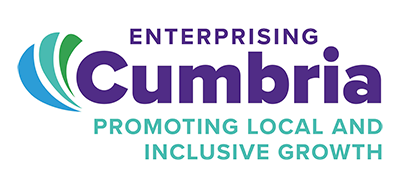Do the words we use hold the key to making young people work-ready?
How we talk about skills might be having more of an impact on young people’s career readiness than we realise, says Cath Dutton, Strategic Careers Lead for Cumbria Careers Hub at Enterprise Cumbria.
We sat down with Cath to understand more about businesses in Cumbria and the landscape for new recruits in Cumbria. She said:
Every day businesses across Cumbria tell me that young people aren’t career ready and don’t have the employability skills they’re looking for.
This is backed up by Cumbria’s Local Skills Improvement Plan Reports which - after speaking with employers across the county - reported issues with employee behaviours and emotional intelligence.
Both were regarded as of ‘immense importance,’ particularly amongst customer facing roles such as hospitality, retail and health and social care.
Dig a little deeper and employers categorise key or essential skills as abilities like dealing with difficult situations, team-working, communicating effectively, self-motivation and managing personal emotions, the list goes on.
The report concludes that employers from all sectors find ‘that new entrants to the workforce are often not equipped with many of the basic tenets required in these areas and require training and support to understand and develop these skills.’
But that’s the problem right there. What is a key or essential skill, a basic tenet?
We use terms like soft, core, transferable, employability and essential but what do they all actually mean? I’ve spent a lifetime working with young people and I’m not sure I could accurately describe each one to universal agreement.
If we, the employers can’t decide what we mean about the skills young people need to enter the world of work how are they meant to?
Put simply by the CBI in their Work Readiness Report, young people understand the value of employability skills yet don’t feel prepared for entering the workforce, employers don’t feel young people are work-ready and teachers and parents don’t know which programme or framework of ‘employability skills’ is best.
This predicament led a teacher in London, Tom Ravenscroft, to conclude that ‘young people are being short-changed by an education system where essential skills like teamwork, leadership, creativity and communication were an afterthought.’ So back in 2016, Tom took matters into his own hands and began testing a Skills Builder Universal Framework to try and consolidate and standardise soft, core, transferable, essential, employability skills once and for all.
Setting out eight essential skills; listening, speaking, problem solving, creativity, staying positive, aiming high, leadership and teamwork, the framework was officially launched in 2020 pioneered by trailblazing employers including Heathrow, Boots and Jacobs. It aims to not only help young people understand their own skill strengths, weaknesses and applicable life experiences but also helps recruitment, staff development and outreach activities.
The Skills Builder Partnership impact reports shows evidence that higher levels of essential skills set up individuals for the rest of their lives with higher earnings (between £3,600 to £4,600 per year), higher job and life satisfaction and a 25 to 50% reduced chance of being out of work or education. Critically they find that 92% of young people and workers believe essential skills are important to their career, and over half would consider changing job to get more opportunities to build them.
For employers, research assessing the Skills Builder approach found embedding it into recruitment practices drove a 23% improvement in recruiting candidates with the right skills. This in part was due to a 29% improvement in employers’ confidence at identifying skills in the recruitment process.
For existing employees, 89% who benefited from learning and development that had embedded the universal framework said the experience had improved performance in their role with 75% feeling more engaged.
For employers using it in outreach in schools and the wider community, 100% felt it improved their programmes’ impact and there was a 17% increase in Corporate, Social and Responsibility (CSR) professionals reporting it effectively built essential skills.
But we need to be mindful that this isn’t a magic wand.
Embedding change will take time and the Skills Builder Impact Reports recognise that opportunities to build essential skills aren’t fairly distributed. Learners and young people with lower family incomes, parents or carers who are less engaged with their education, or who attend a non-selective school make less progress in building their essential skills.
If we can try and address inequality and equity in many ways it seems too simple. Can changing the words we use and consolidating and agreeing skills really make a difference? The evidence is clear that it does and talking to young people, teachers, parents and employers in our Employability Skills Education Programme Working Group, everyone agrees that universal terminology and application would benefit all parties.
With massive recruitment issues across the county, using eight essential skills will provide transparency in the hiring process and remove barriers to entry for many candidates.
That’s why I’m excited that we’re going to be rolling out the Skills Builder Universal Framework across Cumbria in schools and the workplace. Some of the county’s biggest employers including Sellafield and Morgan Sindall are already using the framework and we’re creating free easy to use guidance and support for employers of any size to use.
It’s going to take time but the more momentum and the more employers we can get using it the faster we’ll reap the benefits, so if you’re an employer please join the change. It’s estimated that if young people across the UK receive consistent opportunities across their careers to be taught and apply these skills, the value to the economy would be around £22bn per year. That’s roughly the same as resolving the gaps in numeracy and literacy.
Just imagine what it could mean for Cumbria.
